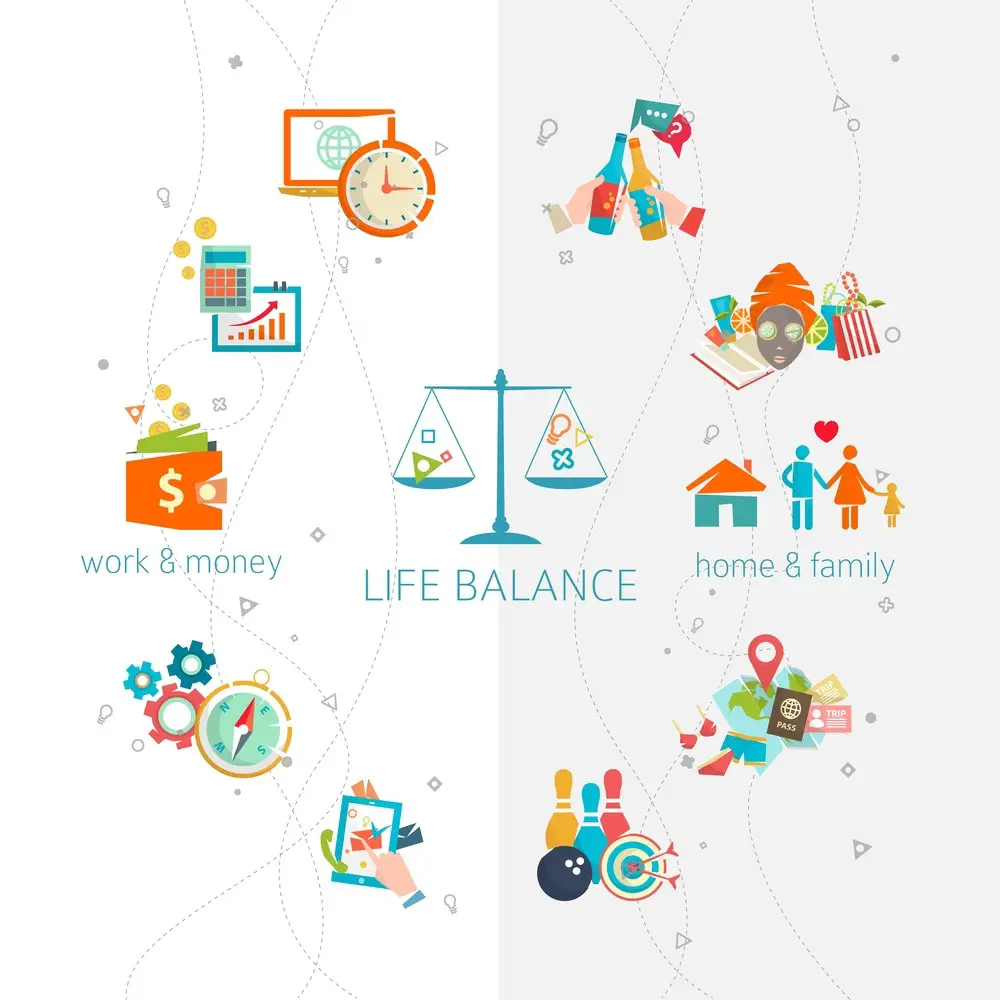As a BetterHelp affiliate, we receive compensation from BetterHelp if you purchase products or services through the links provided
It’s not uncommon to find yourself at a loss for what to discuss in therapy when life seems to be going well. After all, therapy is often associated with addressing challenges and overcoming obstacles. However, when things are looking up, you may wonder how to make the most of your therapy sessions.
During these positive periods, therapy can be utilized to maintain and further enhance your mental health. Proactively addressing potential issues, developing a better understanding of yourself, and setting goals for the future are all areas that can be explored with your therapist, even when life feels less chaotic.
Key Takeaways
- Utilize therapy sessions to sustain and improve mental health during positive times.
- Focus on self-understanding, personal growth, and future aspirations.
- Be proactive and engage in conversations that address potential challenges or areas of improvement.
 Recognizing Progress
Recognizing Progress
It’s always great when things are going well in your therapy sessions! Recognizing progress is important as it allows you to appreciate how far you’ve come and helps you stay motivated in your growth journey. Here are a few ideas on what to discuss in therapy when everything seems to go smoothly.
During your therapy session, reflecting on the goals you’ve set for yourself can be helpful. You might want to discuss which goals you’ve achieved, which ones you’re progressing toward, and any new goals you’d like to set. Feel free to celebrate your accomplishments – after all, you’ve worked hard to reach this point.
Your therapy sessions are also a great space to explore insights that you’ve gained during your journey. Talk about how you’ve developed a greater understanding of your emotions, thought patterns, and behavior and how this new knowledge has positively impacted your life. Sharing these insights with your therapist will help you track your progress and deepen your relationship with your therapist, which is an essential component of a successful therapy experience.
Another aspect to cover in your therapy session is maintaining and continuing your personal growth. Together with your therapist, you can develop strategies for ensuring that new habits, coping mechanisms, and healthy thought patterns last. You might like to discuss:
- Ways to continue practicing your new skills
- How to recognize triggers and prevent falling back into old patterns
- Methods for dealing with challenges that may arise in the future
Lastly, don’t forget to express gratitude for your progress and the support you’ve received during your therapy journey! Acknowledging your growth and thanking your therapist for their help can create a positive atmosphere that will sustain your motivation and encourage further improvement.
Key takeaway: Recognizing progress in therapy is an essential part of your journey. Reflect on your accomplishments, explore insights, discuss strategies for maintaining growth, and express gratitude for the support you’ve received.
 Handling Emotions Positively
Handling Emotions Positively
Handling your emotions positively is essential to therapy, even when things are going well. Recognizing and embracing your feelings, whether joy, sadness, fear, or anger, allows you to build resilience and develop healthy coping mechanisms.
It’s important to remember emotions are a natural part of life. Instead of suppressing or fighting them, try to understand and accept them. You can do this by:
- Practicing mindfulness: Stay present and engage in the moment. This helps you become aware of your emotions and eventually accept them.
- Using self-compassion: Treat yourself with kindness and understanding, especially when you’re experiencing negative feelings. This can help lower emotional extremes and foster self-acceptance.
Developing positive coping strategies is another key component. Here are a few suggestions:
- Exercise: Engaging in regular physical activity not only boosts your mood but also helps you manage stress more effectively.
- Creating a support network: Having a group of people you can talk to and rely on during emotionally challenging moments is crucial for maintaining emotional well-being.
- Journaling: Writing down your thoughts and feelings can be a therapeutic way of processing your emotions.
As you continue to build your emotional resilience, don’t forget to celebrate your successes. Acknowledging moments of joy and happiness helps create a balanced emotional life. A few ways to appreciate these moments are:
- Gratitude practice: List things you’re grateful for each day. This helps you to focus on the positives and fosters an optimistic outlook.
- Engaging in hobbies: Spending time doing activities you enjoy can help increase feelings of contentment and satisfaction.
Remember, therapy is about addressing your challenges and celebrating your accomplishments and growth. By handling your emotions positively and developing effective coping strategies, you can ensure your emotional well-being remains strong, even when things are going well.
 Navigating Relationships
Navigating Relationships
When things are going well in your life, therapy is an excellent opportunity to focus on maintaining and improving your relationships. You can explore the dynamics of your relationships, including successful communication strategies, setting healthy boundaries, and managing conflicts effectively. This will help you become even more effective in building and maintaining strong, fulfilling connections.
Discuss with your therapist how you’ve been communicating with your loved ones. Open communication is vital to any healthy relationship, ensuring everyone feels heard and understood. Your therapist can teach you communication skills to express your emotions and needs more effectively, ensuring everyone is on the same page.
To maintain good relationships, it’s important to establish and maintain boundaries. Understanding what you’re comfortable with can prevent relationship issues from arising. In therapy, you can identify your boundaries and work on strategies to communicate these with your loved ones. This will help solidify your rapport with those close to you and create a more stable and respectful environment.
Relationship problems may also stem from unresolved conflicts. Address these in therapy and practice techniques to resolve disputes amicably. It’s essential to acknowledge each person’s concerns and work together towards a solution, ensuring a smoother relationship journey.
In summary, therapy can help you:
- Enhance communication skills for more open and effective conversations
- Set and maintain healthy boundaries in your relationships
- Develop strategies to handle and resolve relationship conflicts
By engaging in therapy when things are going well, you can continue to nurture your relationships, leading to an even healthier and more fulfilling life with those who matter the most to you.

Addressing Work-Related Issues
Sometimes, even when things are going smoothly in your personal life, you might find work-related stress creeping in. Talking about this in therapy can help you develop strategies to manage it effectively. Here are some areas to consider discussing with your therapist when things are going well.
Work Stress Acknowledge that work stress is natural and happens to everyone. Once you know it, you can talk to your therapist about specific factors contributing to this stress, such as a demanding boss, long hours, or an impending deadline. This will help you pinpoint triggers, making it easier to develop strategies to cope with them.
Finding Balance Juggling work and personal life is important for maintaining overall well-being. Discuss with your therapist how you’ve maintained this balance, and brainstorm ways to improve it. This might involve setting boundaries, improving time management skills, or practicing mindfulness to stay grounded amidst the chaos.
Stress Management Techniques Your therapist can recommend various stress management techniques to help you navigate the work environment more effectively. These might include deep breathing exercises, regular daily breaks, or incorporating physical activity into your routine. Explore different methods and find the one that best suits your needs.
Developing a Support Network Having a strong support system is crucial for managing work stress. Talk to your therapist about fostering relationships with coworkers, friends, and family who can offer support and encouragement and lend an ear when you need to vent. Building these connections and growing your network will help you feel more resilient in the face of work challenges.
In conclusion, addressing work-related issues in therapy is an important step towards feeling more in control and achieving balance in your life. Even when things are going well, it’s always a good idea to have strategies to manage work stress and maintain a healthy outlook.

Reflecting on Past Experiences
Sometimes, you might not deal with any immediate issues in therapy, but that doesn’t mean there’s nothing to explore. Reflecting on your past experiences can open new pathways of growth and understanding. Let’s dive into how you can discuss these topics with your therapist.
One aspect you can explore is your childhood memories. Think about significant events from your younger years, both positive and negative. This can help identify patterns and behaviors that have carried over into your adult life. For example, consider any unique family traditions, memorable vacations, or early school experiences. Sharing these with your therapist can provide valuable insight into your current perspectives and coping mechanisms.
Unfortunately, life isn’t always full of happy memories. You may have faced traumas like abuse, neglect, or losing a loved one. Grief can linger for years, and discussing these topics in a safe environment can help you process and heal. Be open with your therapist about lingering feelings or thoughts surrounding these past events. Their professional guidance can assist you in navigating unresolved emotions and finding new ways to cope effectively.
Delving into your past also means reflecting on your thought patterns and behaviors. Are there recurring themes in handling stress, anxiety, or interpersonal relationships? Consider your coping strategies and discuss their effectiveness with your therapist. This will allow you both to build a toolkit of new strategies tailored to your unique experience.
Key takeaway: Even when things are going well in life, reflecting on past experiences in therapy can lead to deeper personal growth. Explore your childhood memories, traumas, and behavior patterns to gain insight, heal unresolved emotions, and develop new coping strategies.
Planning for the Future
It’s important to recognize that therapy is still a valuable tool even when things are going well. During these times, you can focus on planning for the future and setting yourself up for ongoing success.
One area to address is the incorporation of exercise into your daily routine. Exercise not only benefits your physical health, but it also contributes significantly to your mental well-being. Establishing a regular workout routine will create a positive habit that can boost your mood and resilience.
Personal growth is another key aspect to consider. Reflect on areas in your life you would like to improve or further develop, then work with your therapist to set realistic goals. By fostering growth, you will cultivate a more fulfilling and resilient life.
Try exploring various relaxation techniques as well. They can help you manage stress effectively and improve your overall happiness. Some popular techniques include:
- Deep breathing exercises
- Progressive muscle relaxation
- Guided imagery
- Mindfulness meditation
Embrace movement in your life, both metaphorically and physically. Be open to positive changes that may lead to a more satisfying and enriching existence. This could involve changing careers, embracing new hobbies, or moving to a different city.
Don’t forget to build on the foundation of hope you’ve established in therapy. Keep visualizing your goals and aspirations, as optimism can be a driving force for continued success.
Lastly, remember that happiness is crucial to a healthy and well-balanced life. Work with your therapist to identify your sources of joy and nurture these aspects of your life.
By focusing on these areas while in therapy, you’ll continue to grow and reap the benefits of a happier and healthier future.
 Understanding Therapy Procedures
Understanding Therapy Procedures
It’s great to hear that things are going well for you! When you’re in a positive place, it might seem like there’s not much to discuss in therapy. However, therapy isn’t just for addressing crises or major life struggles. It’s also an opportunity to explore other aspects of your mental well-being and delve into potential growth areas.
Your therapist can help guide you through this process, providing insight and support as you navigate your journey. To make the most of your therapy sessions, consider bringing up the following topics:
The Therapeutic Relationship
The rapport between you and your therapist is crucial. It’s a good time to examine your therapeutic relationship when things are going well. Discuss how you feel about working with your therapist and if there’s anything you’d like to address or change in how you interact.
Treatment Plan
After your first therapy session, you may have already outlined a treatment plan with your therapist. Revisit this plan periodically to check your progress and see if any adjustments or new goals need to be made. This will help ensure that your therapy sessions remain focused and beneficial.
Psychotherapy Techniques
As you become more comfortable in therapy, your therapist may introduce you to new psychotherapy techniques that could benefit you. Don’t be afraid to try new things; everyone responds differently to various techniques. Some examples include cognitive behavioral therapy, mindfulness exercises, or journaling activities.
Telehealth Options
Consider discussing telehealth options with your clinical psychologist if you haven’t already. Telehealth allows you to attend therapy sessions via video call or phone, providing flexibility and convenience, especially if you have a busy schedule or travel frequently.
Therapy sessions should be a safe space to explore your emotions, thoughts, and experiences. Embrace this opportunity to continue growing and strengthening your mental well-being even when things are going well in your life.
Maintaining Mental Health
Taking care of your mental health is just as important during the good times as difficult ones. You can reinforce positive habits and build resilience by maintaining your well-being. Here are some strategies to consider when things are going well.
Find time for regular reflection on your thoughts and emotions. This can help you become more aware of behavioral patterns and potential triggers that could lead to stress or anxiety. Journaling can be a helpful tool, allowing you to record your experiences and identify patterns over time.
Incorporate mindfulness practices into your daily routine. Mindfulness can reduce stress, anxiety, and depression while promoting a sense of calm and focus. Techniques such as meditation, deep breathing, or simply sitting quietly and observing your thoughts can help foster a more grounded mental state.
Be proactive about seeking support when needed. Even when everything seems to be going well, it’s important to surround yourself with reliable friends or family members who can offer perspective and emotional support. Don’t hesitate to contact your therapist if you’re experiencing heightened stress, pain, or anxiety.
Continue working on coping strategies. This may include learning new relaxation techniques, engaging in physical activity, or developing hobbies contribute to overall well-being. The key is to consistently find what works best for you and practice these strategies to build resilience.
Keep in touch with your therapist for preventative maintenance. Regular check-ins with your mental health professional can help you stay on track and address any potential issues before they become larger problems. Through ongoing collaboration, your therapist can help fine-tune your coping strategies and offer guidance for maintaining mental health.
Key takeaway: Maintaining your mental health when things are going well can help you build resilience and prevent stress, anxiety, or depression from escalating. Utilize strategies such as reflection, mindfulness, seeking support, practicing coping skills, and staying in touch with your therapist to foster a strong foundation for mental well-being.
Making Use of Therapy Tools and Techniques
When things are going well, it’s the perfect opportunity to dive into therapy tools and techniques that can further enhance your mental well-being. Don’t be afraid to explore different methods to deepen your understanding of yourself.
One powerful tool for self-reflection is keeping a journal, which can help you track your progress, vent your thoughts, and increase self-awareness. By journaling regularly, you can identify patterns, triggers, and beliefs that may have previously escaped your notice. Jotting down your expectations and acknowledging growth areas can be immensely beneficial in fostering a healthy mindset.
An important aspect of well-being is understanding your sexuality. Discussing your sexual health and preferences with your therapist can provide insight into how it may contribute to your overall health. Allow open conversations to lead you towards a more comfortable and satisfying connection with your sexuality.
In therapy, it’s common to receive homework, which can vary from self-reflection exercises to interacting with your environment, such as family photos or financial resources. Engaging in these tasks can foster a further understanding of your relationships, beliefs, and personal values. Completing these assignments can also break down barriers and instill a sense of accomplishment.
Increased self-awareness can also be obtained by exploring emotional distress and triggers. Although things may be going well for you, understanding potential triggers and stressors allows you to be better prepared when facing future challenges. Developing tools and techniques to manage distress can provide you with an invaluable resource for maintaining mental health.
In summary, when things are going well, it’s an opportune time to maximize therapy tools and techniques that propel your mental well-being to greater heights. Remember, self-awareness is a continuous journey — so incorporate these practices into your life and reap their rewards.
The Green Lights: Signs You’re Making Progress in Therapy
Sometimes, we’re so caught up in the daily grind that we overlook the small victories. In therapy, these markers of progress can include:
- Reduced Anxiety: You notice fewer racing thoughts and more peaceful moments.
- Improved Relationships: A clearer understanding of your needs and boundaries leads to healthier interactions.
- Better Coping Mechanisms: You’re not just reacting but responding thoughtfully to life’s curveballs.
Tips for Acknowledging Progress
- Keep a therapy journal to note down subtle changes.
- Discuss these signs openly with your therapist to validate your experiences.
Elevate Your Goals: What’s Next on the Horizon?
Okay, so you’re making progress—now what? This is the perfect time to:
- Expand Self-Awareness: Dive deeper into your values, motives, and triggers.
- Set Tangible Goals: Specific aims can guide your therapy sessions, whether improving a skill or mending a relationship
 .
.
Strategies to Achieve Goals
- Set your targets using SMART goals—Specific, Measurable, Achievable, Relevant, and Time-bound.
- Visualize your success; mental imagery can be a powerful motivator.
Smooth Sailing But Watch the Buoys: Things to Be Cautious About
When things are going well, it’s easy to become complacent. Here’s what to keep an eye on:
- Overconfidence: A string of good days shouldn’t mean the end of your therapeutic journey.
- Ignoring Minor Setbacks: A small issue can become a big problem later.
Techniques to Stay on Track
- Schedule regular emotional “check-ins” with yourself.
- Discuss any small anxieties or concerns with your therapist before they escalate.
Therapy isn’t just for the tough times; it can also be incredibly enriching during the good times. Use these pointers as a roadmap to make your therapy sessions as effective as possible, regardless of your mental health journey.
Frequently Asked Questions
How can I maintain this positive progress?
To maintain your positive progress, try the following strategies:
- Reflect on your achievements and recognize your growth
- Stay consistent with your therapy appointments, even when you feel good
- Practice self-awareness and mindfulness in your daily life
- Set aside time for self-care and activities that bring you joy
Remember, maintaining progress is an ongoing process. Embrace the journey!
What new goals can we set for my personal growth?
Setting new goals is a great way to continue your personal growth. Consider goals in the following areas:
- Developing new skills or hobbies
- Strengthening your emotional intelligence
- Improving time management or organization
- Exploring new self-care routines
- Enhancing your communication skills
Keep in mind that goals should be realistic and achievable.
How can I better handle future challenges?
To better handle future challenges, try these tips:
- Use problem-solving strategies from therapy to navigate issues
- Cultivate resilience by reflecting on past challenges and growth
- Stay flexible and adaptable to changes
- Reach out for support from your therapist, friends, or family
Challenges are a natural part of life, and facing them builds strength.
What are some healthy coping mechanisms I can continue to develop?
Developing healthy coping mechanisms can help you manage stress and maintain well-being. Consider:
- Deep breathing or mindfulness exercises
- Journaling or creative outlets
- Engaging in physical activities, such as yoga or exercise
- Connecting with supportive people in your life
Experiment with different coping mechanisms to find what works best for you.
How can I strengthen my relationships and communication skills?
Effective communication is key in building and maintaining relationships. Try these tips:
- Use active listening and pay attention to nonverbal cues
- Practice expressing your thoughts and feelings assertively
- Show empathy and understanding towards others
- Set boundaries and communicate them clearly
Work on incorporating these techniques gradually, and observe improvements in your relationships.
What self-care strategies can I implement when things are going well?
Even when things are going well, self-care is essential. Consider these self-care strategies:
- Regular exercise and healthy eating habits
- Prioritizing sleep and relaxation
- Engaging in hobbies and activities you enjoy
- Practicing gratitude and celebrating your accomplishments
Remember, self-care is an ongoing commitment and plays a significant role in maintaining your well-being.
Meet the Author: A Walk Through Jacob Maslow’s Therapeutic Journey
Hey there, I’m Jacob Maslow, and therapy has been a constant companion on my tumultuous life path. You might say I’m a therapy veteran, as I’ve navigated the complex world of mental health while managing my own with Lexapro. I’ve witnessed how therapy can make or break relationships, particularly with my ex, who suffers from severe narcissism and has refused to cooperate with court-ordered custody or even allow communication with our kids.
I take long, reflective walks daily to clear my mind and gain fresh perspectives. Believe it or not, life continues, and I want to help you understand that, too. I write articles like this, focusing on mental health and dealing with narcissistic partners. I also run a legal site aimed at helping people in situations similar to mine—where a spouse weaponizes kids rather than opting to co-parent.
I firmly believe anyone can triumph over their mental health challenges. If I can, so can you.
- 7 Ideas to Help You Relax and Unwind on a Family Vacation - April 27, 2025
- How Having Cybersecurity Protection Helps You Relax - April 25, 2025
- 8 Reasons Why Spending Time Outside Calms You Down - April 25, 2025
This site contains affiliate links to products. We will receive a commission for purchases made through these links.


 Recognizing Progress
Recognizing Progress Handling Emotions Positively
Handling Emotions Positively Navigating Relationships
Navigating Relationships Understanding Therapy Procedures
Understanding Therapy Procedures .
.
